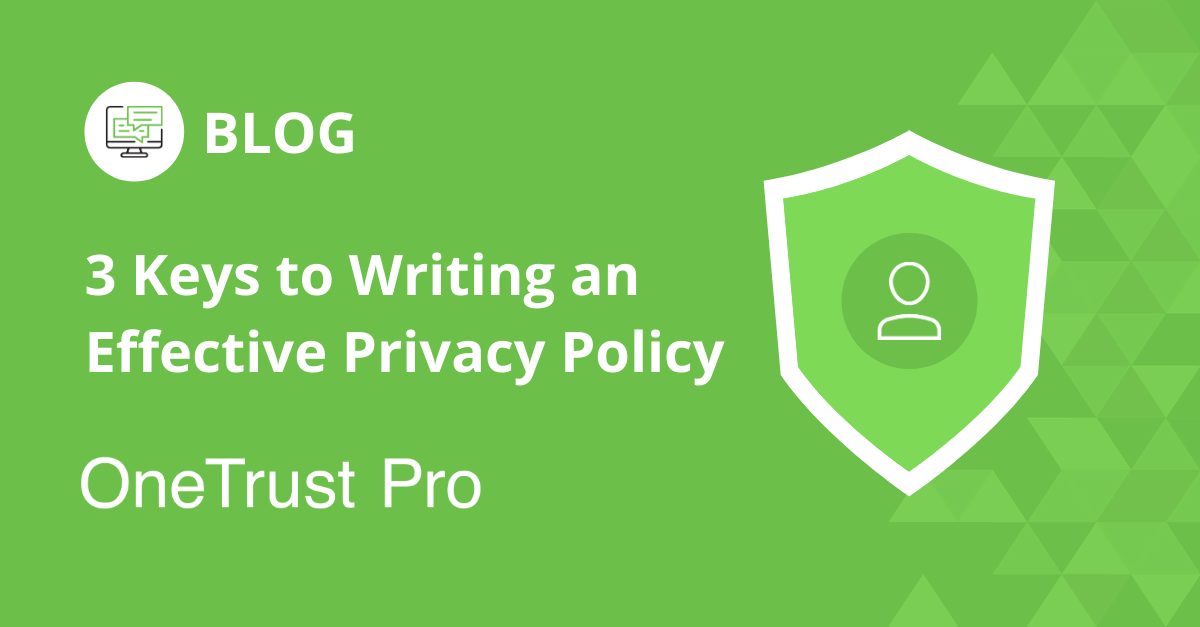Yes, it’s true. If you’re a small business, you’re required to have a privacy policy. And you’ll be held accountable for any breaches or mishandlings of consumer data the same way a multi-million dollar corporation would be.
It can be scary stuff. But don’t worry… drafting up a privacy policy isn’t as tough as you might think. Plus, it will provide great benefits to your SMB.
Use this simple step-by-step guide to ensure you write an effective privacy policy for your small business.
Why Small Businesses Need a Privacy Policy
To understand why you need a privacy policy, it’s first important to understand what it is.
By definition, a privacy policy is a legal agreement between your small business and its customers. The policy serves as a form of transparency, allowing your company to disclose what kind of data you’re collecting from them, how it will be used and most importantly, how you’ll protect it.
And yes, your small business is required to have one if you’re collecting any sort of data – personal or anonymous. The next logical question is why is this necessary?
There are two main reasons your SMB needs to have an effective Privacy Policy.
1. It’s the law
Privacy laws apply to businesses across the globe. You’ve likely heard of the General Data Protection Regulation (GDPR). This law passed in 2018 requires any business collecting data from citizens of the European Union (EU) to create a privacy policy that’s easy to access and understand.
In the United States, California has been a pioneer for privacy laws after passing The California Consumer Privacy Act (CCPA). The CCPA requires a business’s privacy policy to disclose how they’ll be using any California resident’s information prior to collecting any data. And many more states are following the West Coast state’s lead.
It’s critical your small business builds an effective privacy policy that complies with federal and state legislations.
And if you misrepresent how you plan on using that data, you could be setting yourself up for some nasty repercussions. We’re talking hefty fines and long legal battles.
2. It provides protection from liability
Another reason your small business needs to have a privacy policy is to cover your tracks. Once customers accept the terms of your privacy policy, they no longer have a cause of action against your business. In accepting the terms of the agreement, the customer authorizes your practices as long as you hold up your end of the policy.
This means if a customer agrees to your terms but later decides he or she no longer agrees with your data practices, you’re protected. Not to mention, putting everything out in the open enforces that your brand is a trustworthy and honest business partner. And who doesn’t stand behind that?
What Should Be Included in a Privacy Policy
Now that you know why you should have a privacy policy for your small business, it’s time to learn what you need to include. While there’s no “one size fits all” privacy policy, there are some required provisions for every business including:
- A description of the data your business is collecting
- A statement on how you are collecting information
- Any information you will be sharing or disclosing with affiliates
- An explanation of how customers can update their information
- A description of how your small business protects customer data
- An easy to find and use communications opt-out
- A statement claiming your business has the right to make updates to your Privacy Policy
Again, these are just the foundations of a basic privacy policy. Requirements can vary depending on how your business is collecting the data, using the data, and distributing it across different departments. Reach out to a professional to find out exactly what you need for your SMB’s privacy policy.
Also, keep in mind that just because your small business is technically following the rules, doesn’t mean you can’t make your privacy policy experience as seamless as possible. Luckily, there are three best practices when it comes to executing your privacy policy to do just that: Use plain language, be clear and transparent, and keep it updated regularly.
Privacy Policies the Easy Way
Privacy laws don’t exempt you from protecting a customer’s personal information based on your business’s size. And being a small business, you have a lot more to lose in a legal case than the larger corporations.
Fortunately, by following best practices, you can protect your business while providing the utmost transparency to your customers. Best of all, drafting your privacy policy doesn’t have to be difficult.
OneTrust’s technology automates the entire process so you can get back to what’s important: Growing your small business. We’re an industry leader in privacy management software. Request a demo or download the OneTrust Pro Privacy Requests and Notices datasheet today to learn more.



